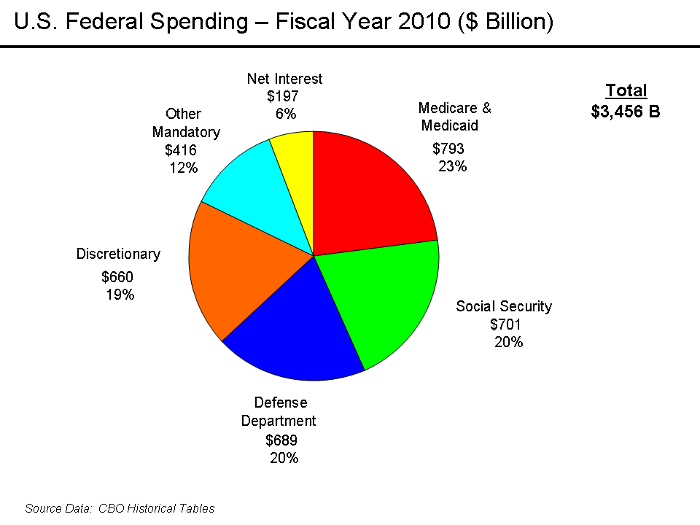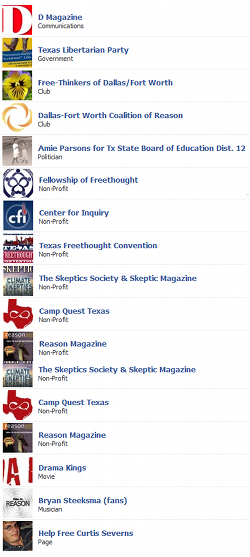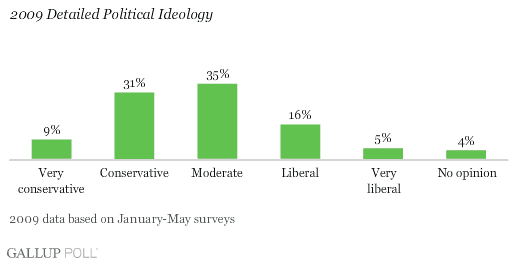Between my undergraduate years in the late 1990s and his death in the late 2010s, I got to know John Wesley Hardt, a bishop in the United Methodist Church.
He knew my grandmother. She was the secretary to the United Methodist district superintendent while John was pastor at First United Methodist Church of Beaumont, Texas. The district superintendent’s office was at this church.
I didn’t really dig into theological or church-organizational matters with him as much as I should have. My role in his life was mostly to help him with technology issues. I experienced him as a wise man who bore years of reflection and experience.
Once he shared a Sunday school lesson with me, titled “The Rise of Liberalism in the UMC”. Some errors are original, other are probably where I missed a problem with OCR of his original text. Here it is:
Let me thank you for giving me a topic which has required more than ordinary study and preparation which I have found most stimulating and challenging. I have talked with David Watson and understand that today’s topic is to provide the background for David’s presentation next Sunday on Post Liberal Theology. While I am honored by your invitation to lead this discussion today, I can only offer my personal observations, and I am sure that anyone else would put a different slant on the topic than you are likely to get from my remarks.
First let us begin with a call to clarify the definition of liberalism. It is my personal conviction that the popular understanding of terms liberal and conservative is a tragic distortion. If you listen to the talk show hosts on radio, you get the idea that liberal is a dirty word. As I have listened to some of the angry voices, I have decided that most of the persons have no basic convictions themselves but are simply entertainers who have been hired to build up an audience and they are willing to use any means to agitate and inflame an audience. One of the several persons whom I have consulted in preparing this lesson is my son who is a history teacher and published author of curriculum materials, and his observation was this: “in the current climate one side has been able to define and determine the terms of the debate” which has resulted in a total abandonment of the meaning of the words Liberal and Conservative that you will find in the dictionary.
So early on I began to look at the dictionary and discovered that the root meaning of the term liberal may be traced to the Roman god Liber, who was known as the God of growth. From this root meaning, several pages of the dictionary are taken to list the variety of meanings that have been derived from this grand idea: liberal arts and concepts of freedom include an attitude that involves growth and change leading to words like generous, bounteous, openhanded may be found in various connotations of the term liberal. One meaning that especially appealed to me was “to grow up”. The meaning of “Liberal” may be contrasted with such concepts stingy, mean, bigoted, grudging.
The word conservative has equally positive associations such as conserving or preserving the institutions and values which have built upon the lessons of the past.
To trace the rise of liberalism I would suggest that we go back to 1776 and the Declaration of Independence which advanced the radical idea that human society could be organized without the domination of rulers who would carry on the autocratic reign of kings that would become role models for dictators who would become the enemies of mankind in the 20th century. The old kingdoms of Europe would go through revolutions to replace the old power structures of Europe, and some of those visions of freedom and liberal patterns of government would become unfortunate detours that produced both dictators and Communist governments. Historians remind us that today the government of the United States of America is now the oldest continuous government on the face of the earth that has not undergone some kind of radical revolution.
At the same time this political and social experiment was beginning in America, the Methodist church was organized as the first religious denomination to be organized in the New World. By the middle of the 19th century at the time of the war between the states, which some southerners call it rather than a civil war, the Methodist Church was the largest and most representative religious body within the nation, and historians have described Methodism as the most typical “American religion”.
The study of this reality is now attracting the attention of historians who are not Methodists, and one such writer Nathan Hatch based at Notre Dame university has written in a most illuminating manner in this manner. Toward the end of the 19th century the visions of Utopia captured the imagination of many Americans. [Aren: It is behind why my Cambre ancestors came to the USA.] The YMCA and the YWCA along with the student volunteer movement brought a vision of making this world into God’s Kingdom on earth. When my parents went to college early in the 20th century they were swept up by a popular phrase: “The Evangelization of the World in our Generation.” So the doctrines and theology of Methodism became a reflection of the culture of that time.
By strange coincidence in the midst of this reflection I picked up a little book published in 1947 two years after end of World War II. Written by Bernard Iddings Bell, and entitled, ” A Man Can Live” let me share a few lines from the Foreword:
“On December 31, 1899 my father called his young children together. I had entered high school that year … he reminded us that a new century would begin the next morning, and that we should be thankful that we would live in a century when science and education would eliminate the major enemies of mankind. We could expect to conquer disease and the world would be too enlightened to ever engage in war again.”
With that kind of utopian visions, when war did come it was fought to “make the world safe for democracy”, and the dream of a League of Nations would guarantee a peaceful future. This spirit of idealism might be traced in two landmark constitutional amendments: the 18th Amendment which envisioned a time when society would be free from the demons of drugs and alcohol, and the 20th amendment which for the first time guaranteed women the right to vote. A decade earlier the Methodist Episcopal Church had included in its Book of Discipline, a Social Creed in 1908 for the first time. It was in that kind of social and cultural climate that the Methodist church began to build theological schools for the training of pastors. Would you believe that my generation was the first, after World War II when the normal expectation for Methodist preachers included seminary training? Prior to World War II only a minority of Methodist preachers went to seminary.
The premier Methodist seminary was in Boston, and late in the 19th century the most influential teacher there was a man by the name of Borden Parker Bowne, and he organized Christian doctrine around a philosophy of Personalism, and most of the teachers in other Methodist seminaries studied at Boston. That influence was quite evident when I entered seminary in 1942, and our basic text for studying doctrine was written by a Boston successor to Bowne by the name of Edgar Sheffield Brightman.
The study of the scriptures developed a pattern which was called Biblical criticism: lower criticism was devoted to a word by word analysis of the meaning of the scripture, and higher criticism was devoted to the background of each book in the Bible: who wrote it? When was it written? To whom was it written? And the interpretation attempted to recapture something of the meaning which it had when it was first written. This might be called a very hasty and brief description of the Rise of Liberalism.
Most universities would have focused upon what was sometimes called “a liberal education”. Within college curriculums, a broad based variety of disciplines was termed “liberal arts” in contrast to the specialized studies of narrow professional or exclusive systems of study.
The proliferation of translations of the Bible across the 20th century might be considered one of the fruits of this general progressive understanding of religion, along with the rapidly developing ecumenical movement which brought most mainline denominations into more and more common ventures.
When the dreams of an almost utopian paradise were shattered by the great depression, and the horrors of World War II and the holocaust, it became obvious that something was missing from the promises of this liberal progressive dream. The reality of human sin and evil forced thoughtful people to reconsider the realities of any dream of heaven on earth. The theological movement that began to offer a different interpretation of the human condition was called “”neo-orthodoxy” with Karl Barth, Emil Brunner, Paul Tillich, and Reinhold Neibuhr were among the most prominent spokesmen. With this emerging and changing world view, Albert Outler arrived at SMU, and the center of Methodist theological study began to shift from the Boston power base to Harvard, Yale, and seminaries at Duke, Emory and SMU. You will hear more of this next Sunday from David Watson as he talks about Post Liberal Theology. The influence of Outler at SMU was most widely recognized when in 1972 after the merger with the EUB denomination, a theological understanding was written in our Book of Discipline which was called the quadrilateral, with Methodist doctrine founded upon Scripture, reason, tradition and experience. In 1988 that understanding was modified to make it clear that our doctrines are based upon one basic source, the Bible to be confirmed by tradition, tested by reason and confirmed by experience.
As already indicated it is my observation that religion in America may be understood as something of a reflection of the culture in which we live and when any one interpretation becomes the primary understanding, there will be inevitable and very understandable reactions. This is what we have witnessed in the latter half of the 20th century as the Liberal spirit of the 19th century and early part of the 20th century has been confronted by the reactionary groups which are now all around us in organizations such as the Good News Movement, The Confessing Movement or the Institute for Religion and Democracy. Each of these movements owes it origin to some reaction against the over zealous social and liberal power blocs which have attempted to define the church in narrow terms that ignored some of the traditional and time honored values of the Christian faith.
Every generation is given its own peculiar and unique challenges. The lessons of history are so quickly forgotten. A great Spanish philosopher, Santyana, was credited with saying: “Those who refuse to learn the lessons of the past are condemned to repeat them.”
Many of the beloved hymns came out of the dreams of this visionary period of the church. The great missionary hymns, We’ve a Story to tell to the Nations, I love to tell the story of Jesus and his love. When I was a youth the theme song for many a youth conference was “Are ye able said, the Master?” written by Earl Marlatt who after retiring from Boston, came to teach at SMU. In more mature years I came to realize that as challenging as I found that hymn in my youth, the emphasis was wrong. For the question, Are ye able, must be answered, not “WE are able” But “He is Able” Some great texts from the New Testament make it clear that our hope is not in what we may do but in what Jesus Christ may do through us. In Timothy Paul offers his testimony, concerning death: “He is able to keep that which I have committed unto him against that day.” And in Ephesians the focus is the great benediction: “Unto Him who is able to do far more abundantly than all that we ask or think, to Him be glory in the Church and in Christ Jesus, throughout all ages, world without end. Amen.”
So let us reclaim the positive meaning of liberal and conservative and find a healthy balance between the partnership between the human and the Divine. While Liberalism may have over rated what human kind might accomplish, the Biblical story of creation makes it clear that God’s crowning creation was the creation of creature “made in the image and likeness of the Creator:” and” He is able to do far more abundantly than all that we can ask or think.”
John Wesley Hardt
First UMC
May 8, 2004


 (image source: Wikipedia
(image source: Wikipedia  I am scratching my head that the Texas Libertarian Party fielded this guy.
I am scratching my head that the Texas Libertarian Party fielded this guy.